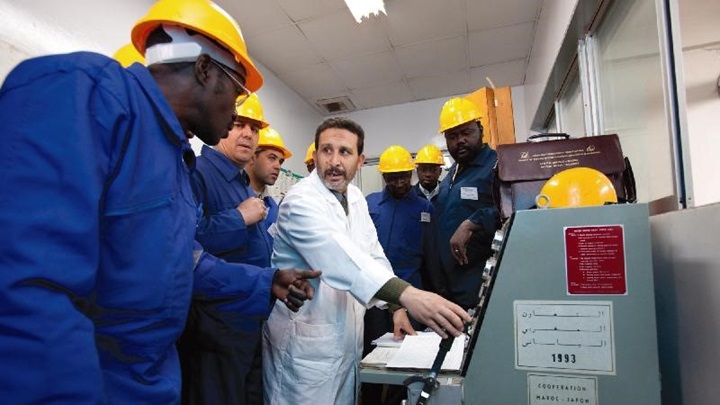Monthly Highlights of Research Activities: September 12 is the International Day for South-South Cooperation
2025.09.11

Photo: JICA/ Shinichi Kuno
South-South cooperation refers to developing countries supporting each other’s development by sharing technology, knowledge, and experience. To promote technical cooperation among developing countries, the United Nations adopted the Buenos Aires Plan of Action (BAPA) in 1978, and designated September 12 as the International Day for South-South Cooperation in commemoration.
Japan began its international cooperation programs in 1954, when the country itself was still in the process of postwar reconstruction. In this sense, Japan can be seen as an early pioneer of South-South cooperation. Since 1975, when JICA began its first third-country training program in Thailand, it has promoted triangular cooperation for over 50 years—supporting South-South cooperation initiatives with funding, technical expertise, and operational know-how. In recent years, JICA has also worked to strengthen partnerships with emerging countries and international organizations, aiming to maximize the effectiveness of development cooperation.
JICA Ogata Research Institute has conducted extensive studies on both South-South and triangular cooperation, as well as on emerging countries. Below are some highlights of this research.
South-South and triangular cooperation are recognized as effective approaches to sustainable development. With growing interest in these approaches, the Institute has produced the following three reports:
This report explores development cooperation in the 21st century, focusing on South-South and triangular cooperation in areas including climate change and disaster risk management, capacity development, and scaling up. It also presents diverse case studies of JICA’s cooperation in Asia, Africa, and Latin America.
This comparative study analyzes the mechanisms of triangular cooperation of DAC member countries. It focuses on Germany, Japan, and the UK—countries that actively utilize triangular cooperation—and examines the planning, financing, and budgeting systems involved.
This report outlines the key characteristics and achievements of triangular cooperation in JICA’s programs.
In recent years, many emerging countries have also leveraged their own development experiences to support other developing countries. Recognizing their growing role in global cooperation, the Institute has carried out research such as:
This paper examines the impact of four so-called “emerging” donors—China, India, South Korea and Thailand— on Cambodia’s development, with a specific focus on the processes of aid provision by these donors. By accounting for the experiences of the recipient country, this paper also challenges the conventional view that aid fragmentation should a priori be reduced.
In addition to estimating the amount of China’s foreign aid, this study revealed the foreign aid activities of emerging development actors, such as India and Indonesia—countries previously overlooked—and emphasized the potential of intellectual exchange among developing nations to support their own development.
This long-term study examined how the rise of emerging countries is reshaping international development norms, how partner countries respond to their cooperation, and how emerging countries strengthen their domestic systems to expand their development assistance.
Policy recommendations from this project are summarized in:
This study is examining the development cooperation approaches of emerging countries, comparing them with Japan’s, and exploring possible future co-creation partnerships with emerging countries, including key challenges and possible solutions.

事業事前評価表(地球規模課題対応国際科学技術協力(SATREPS)).国際協力機構 地球環境部 . 防災第一チーム. 1.案件名.国 名: フィリピン共和国.

事業事前評価表(地球規模課題対応国際科学技術協力(SATREPS)).国際協力機構 地球環境部 . 防災第一チーム. 1.案件名.国 名: フィリピン共和国.

事業事前評価表(地球規模課題対応国際科学技術協力(SATREPS)).国際協力機構 地球環境部 . 防災第一チーム. 1.案件名.国 名: フィリピン共和国.

事業事前評価表(地球規模課題対応国際科学技術協力(SATREPS)).国際協力機構 地球環境部 . 防災第一チーム. 1.案件名.国 名: フィリピン共和国.

事業事前評価表(地球規模課題対応国際科学技術協力(SATREPS)).国際協力機構 地球環境部 . 防災第一チーム. 1.案件名.国 名: フィリピン共和国.
scroll